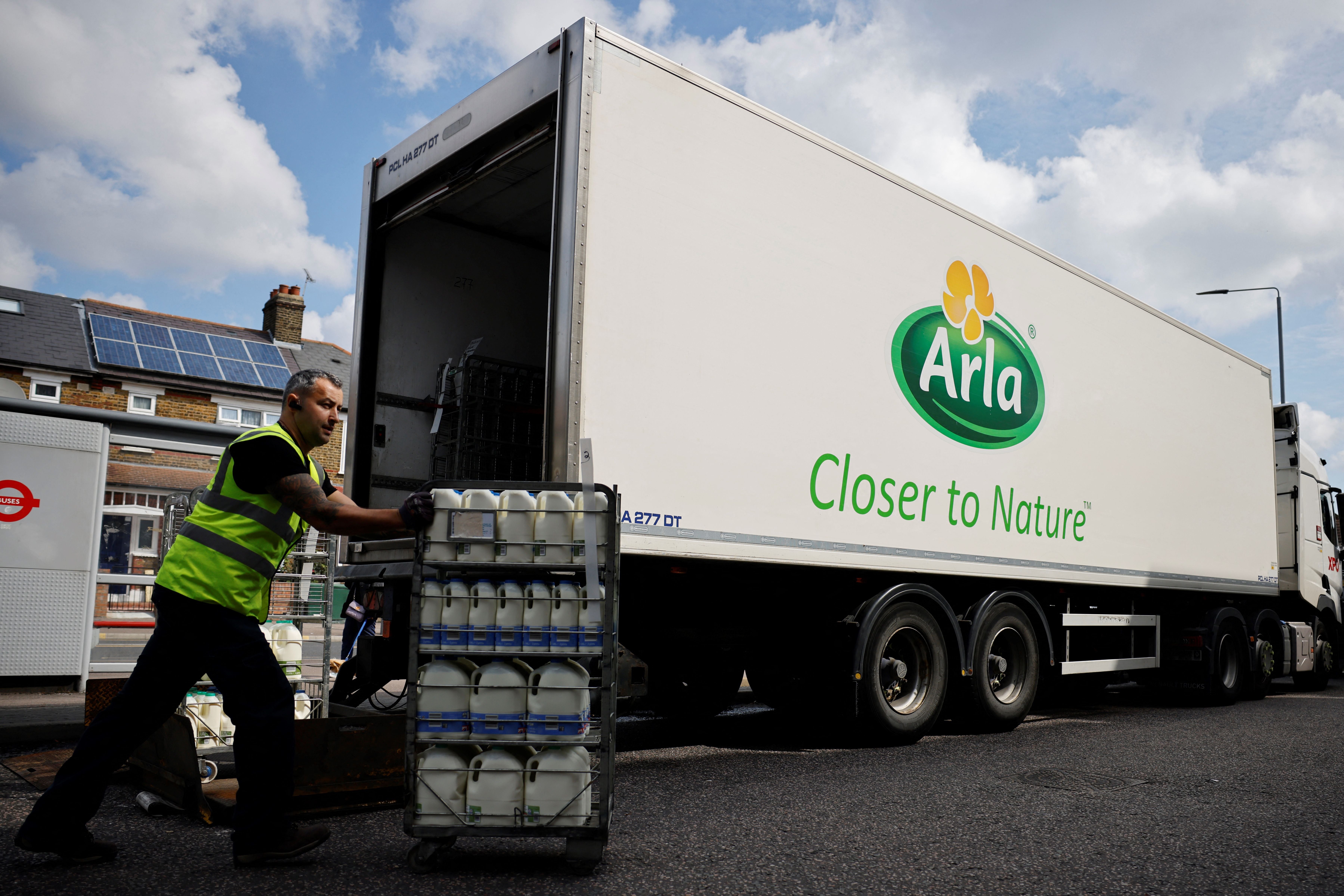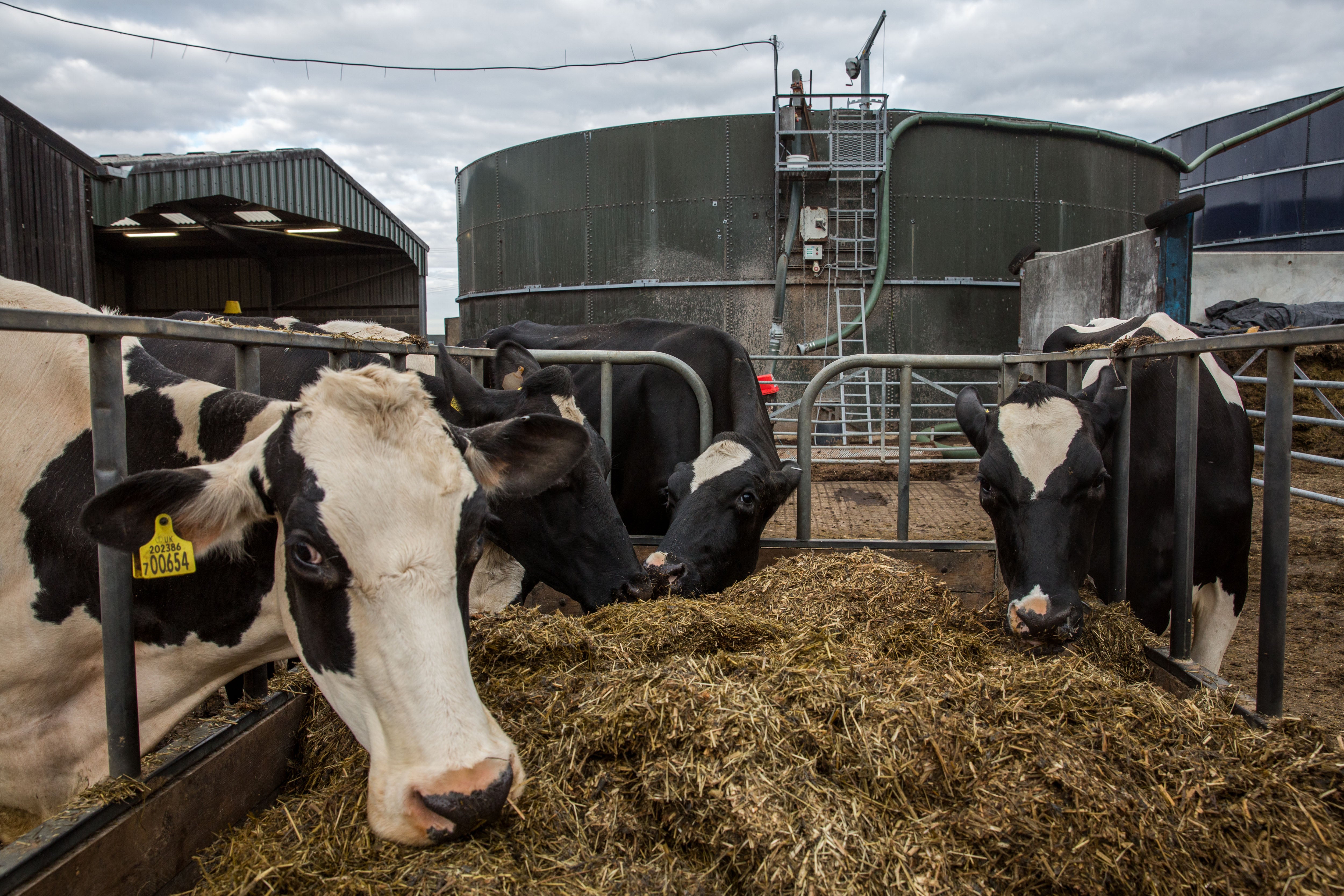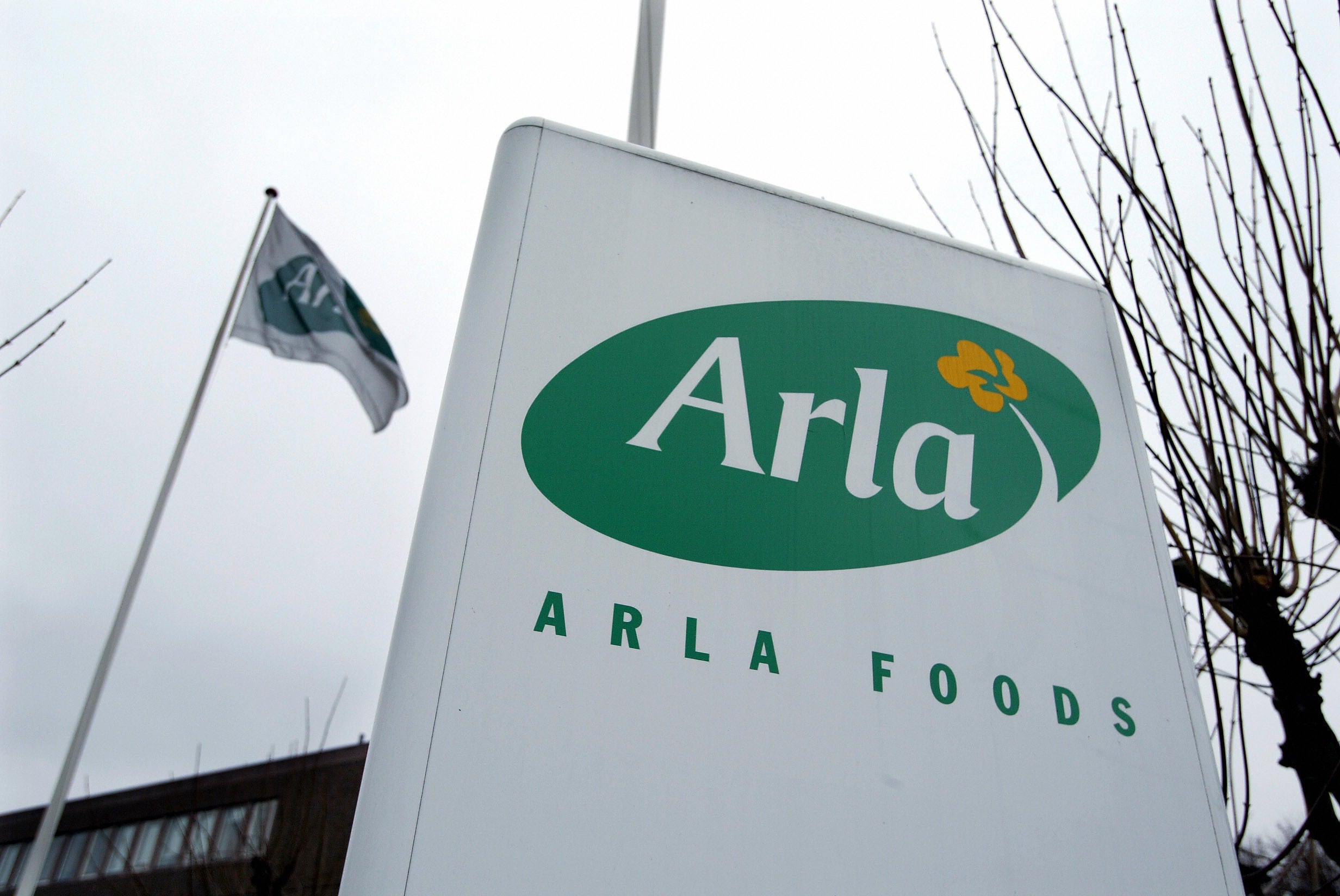A new trial to add a methane-suppressing additive into cow food has prompted online shoppers to threaten a boycott of three major supermarkets.
Arla Foods announced the trial of the supplement last Tuesday as part of an attempt to reduce the emissions produced by the cows in their production lines.
The feed additive known as Bovaer will be used in a trial across 30 British farms, the company announced in a post on X last week which has been viewed nearly six million times, in a move which it says “represents an amazing chance to reduce emissions on farm”.
Arla, which is the UK’s largest farmer-owned dairy cooperative, is working alongside Aldi, Morrisons and Tesco in the trial.
But the announcement has received 13,000 replies on X and has led to swathes of people pouring milk down the toilet and throwing tubs of Lurpak in the bin, claiming that Bovaer is toxic and could harm cows, farmers and consumers.

Why is Bovaer being tested and what is it?
Arla says Bovaer could reduce methane emissions produced by cows by up to 27 per cent.
Reducing methane emissions is one of the “fastest and most cost-effective tools available to limit global temperature rise to 1.5°C”, a UK government report found in 2022. Methane accounts for approximately 13 per cent of the UK’s net greenhouse gas emissions.
In 2021 – the last year with publicly-available data – agriculture was behind 49 per cent of methane emissions in the UK, according to the Department for Environment, Food & Rural Affairs (Defra).
According to the producer of the supplement, DSM-Firmenich, Bovaer suppresses the enzyme within the cow’s rumen which combines hydrogen and carbon dioxide to produce methane. This means less methane is released by the cow into the atmosphere.
The firm’s website claims that it has been “proven safe for animal, farmer and consumer”. In a response to online critics in the UK, the firm says 150 trials worldwide and 85 articles in peer reviewed journals support its efficacy.

Why has there been a backlash?
Arla’s online announcement sparked anger online, particularly among climate change deniers and those interested in conspiracies as the product was falsely linked to software billionaire Bill Gates.
One response to the post on X, liked more than 14,000 times, said: “You are f****** insane if you think adding toxic chemicals to cows food that could cause harm to the farmers and the cows will help alter the climate of the planet I will be avoiding ALL of your products.”
“Cows have been farting since cows existed, and the climate has always changed,” one consumer wrote.
Another said the company is making a “huge mistake”, adding: “Once word gets around people will avoid your products. We do not want that poison in our food. Change your plans or go bankrupt.”
A fourth wrote: “I used to regularly buy your products (mostly protein shakes and yoghurts), but won’t be any longer until you stop using Bovaer. I will also be boycotting Tesco, Morrisons and Aldi while they continue to play a part in this. Anyone with me?”
Posts calling for boycotts of Tesco, Morrisons and Aldi gained significant engagement, with some also taking to TikTok to call on others to join the boycott. Viral online videos have shown people pouring milk in the toilet down the sink as they refuse to consume products made by Arla.
DSM Firmenich was forced into stating that Bill Gates – the subject of a number of conspiracy theories – was not involved with the company. “Bill Gates is not involved in the development of Bovaer,” the company said.
How safe is Boevar?
DSM-Firmenich says the UK Food Standards Agency has approved the use of Boevar based on “evidence that it does not harm the animals or negatively impact their health, productivity, or the quality of milk”. It added: “They concluded that the product is safe for use, both for animals as well as humans, and is effective in reducing methane emissions.”
If used as recommended, Boevar is “fully metabolized” by the cow meaning it is “not present in milk or meat, so there is no consumer exposure”.
There are no health risks and the substance does not impact milk production or reproduction, the firm adds.

Arla Foods reiterated these claims in a statement issued in response to the backlash. The statement added: ”Alongside the 2,000 farmers across the UK who own Arla, we work hard to produce healthy & quality food every day. We work to ensure that this is done safely, whilst also working to reduce our impact on the environment.” Both Morrisons and Aldi said they are aligned with Arla’s latest statement when contacted by The Independent.
The National Farmers’ Union Dairy Board chair Paul Tompkins said questions remain over the “long-term efficacy” of Boevar and how it can be used effectively on farms.
“This latest trial, on a product which has already been approved by the Food Standards Agency as safe for consumers, could help provide some of this evidence,” he added.
The Independent has contacted Tesco for comment.



